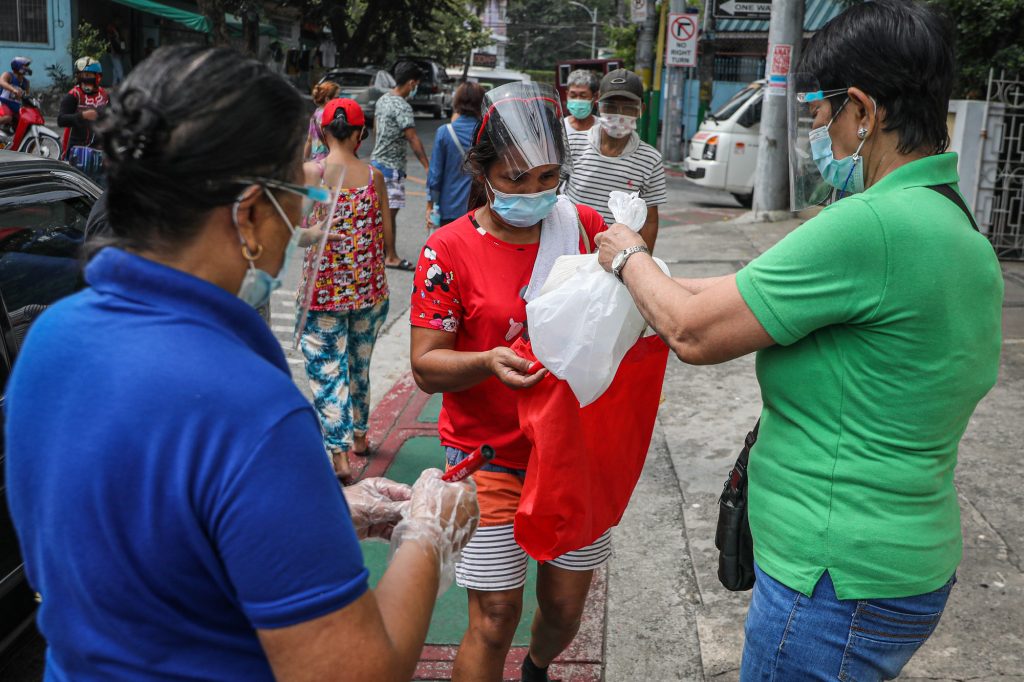
Across Asia, the COVID-19 pandemic devastated lives and livelihoods, taking away 147 million jobs and pushing 148 million Asians into poverty, said a report from international aid agency Oxfam.
The region’s billionaires, however, grew their wealth by US$1.46 trillion, leading to a staggering rise in inequality, added the agency’s report released on Friday, January 14.
The report said Asia’s richest one percent now own more wealth than the poorest 90 percent and the impact of COVID-19 combining with existing inequality has set back equitable development in the region by decades.
It said that existing economic policies are rigged in favor of the wealthy, “allowing them to accumulate incredible amounts of wealth, while narrowing the chances of the poorest to catch up.”
The report noted that vulnerable groups such as women, ethnic and religious minorities and migrant workers were worst affected as their incomes shrunk and their access to essential services was reduced.
“School closures have worsened the education divide with an estimated 10.45 million children dropping out of school and university forever, with far-reaching consequences for their life-chances,” said Oxfam.
It said that in countries such as Indonesia, Pakistan and Philippines 46-64 per cent households were unable to receive medical attention due to lack of funds.
Women make up over 70 percent of healthcare workers in Asia but over 60 percent struggled to receive adequate healthcare during the pandemic.
“Women also experienced an increase in their care-work responsibilities, suffered greater levels of domestic and gender-based violence, while rates of teenage pregnancies and unsafe abortions rose,” said the report.
Meanwhile, Oxfam noted that Asia’s richest were “shielded from the impact of the pandemic and many even thrived.”
According to the report, the number of billionaires in the region grew from 803 in March 2020 to 1,087 in November 2021, and billionaires were able to grow their wealth by 74 percent.
“Some wealthy Asians even profiteered directly from the pandemic and there are 20 new Asian billionaires whose fortunes came from equipment, pharmaceuticals, and services needed for the pandemic response,” it said.
Oxfam’s report makes recommendations to address Asia’s growing inequality through progressive policy actions by governments that prevent millions of poor Asians from falling through the cracks.
According to the report a wealth tax of 2 to 5% on Asia Pacific’s multi-millionaires and billionaires, could raise an additional $776.5 billion every year, enough to increase public spending on health in the region by 60% and can prevent unnecessary and pre-mature deaths in the future or enhance education opportunities to bridge the gap opportunity.
“The pandemic has shown the need for better social protection and stronger public health systems,” said Oxfam interim Asia regional director Dieneke van der Wijk in a statement.
He said governments across the region must scale up existing programs and introduce policies designed to reduce health and economic inequalities.
“This means increased taxation of rich individuals and corporations, greater investment in public services and vaccines for all, social protection and decent work, living wages, and robust labour rights. It also means investing in and valuing care work to tackle gender inequality,” said Van der Wijk in the statement.
“We are at a turning point in history where we have an opportunity to rebuild a better economic and social system that does not allow a few to accumulate wealth at the expense of millions,” he said.
“Future policies must ensure rights, freedoms and opportunities for women, girls and vulnerable people and protects the planet that we live on,” added Van der Wijk.
Source: Licas Philippines
0 Comments